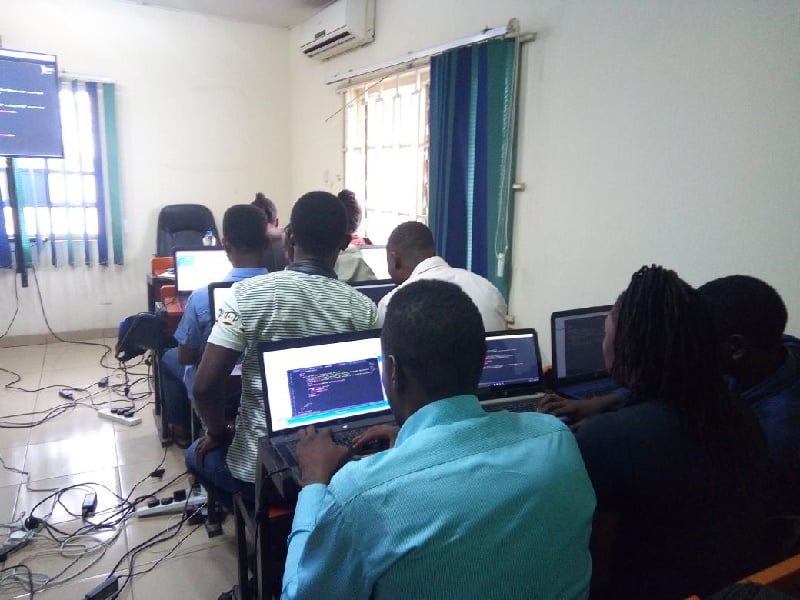
Course Info
- Duration in Years: 6 Months - 1 Year
- Duration in Hours: 144 – 288 Hours
- Time Commitment: 8-9 Hrs/week
- Language: English
- Difficulty: Basic-Advance
- Pre-requisite Knowledge: None
- Training Mode: Online & Classroom
The field of Radio Frequency and Microwave Engineering concerns the design and analysis of engineering systems for high frequencies, typically in the MHz and GHz range. Applications include cellular communications, high-speed digital and analog circuits, wireless networks, radar, television and radio.
This program covers all aspects of Radio Frequency Engineering, a subset of electrical engineering. It incorporates theory and practices to illustrate the role of RF into almost everything that transmits or receives a radio wave which includes: RF planning, and cellular networks such as GSM, CDMA, UMTS. HSPA+, LTE, LTE-Advanced, LTE-Advanced Pro, 5G, mmWave, Radar, Wi-Fi, Bluetooth/BLE/BT5.0, Zigbee, Satellite Communications, VSAT, two-way radio, Public Safety, testing and simulation.
RF and Microwave Engineering program will provide you with a solid understanding of RF surveys and planning, electromagnetic modeling and simulation, interference analysis and resolution, coverage analysis, propagation models, RF engineering, system specifications and performance, modulation, antenna theory, link design, traffic engineering, optimization, benchmarking, safety, RF testing, and system integration and measurements. Design and production engineers and technicians interested in improving RF engineering skills through a practical approach will benefit from this course.
With this program, you’ll have a clear understanding of Radio Frequency waves and know how to use a range of Radio frequency (RF) wireless and microwave measurement equipment; you will learn to configure Base Stations for Non Line of Site (NLOS) operations with Customer Premise Equipment (CPEs); you will learn to configure Radios for Point to Point communication, say between a branch office and its head office; you will learn to Design such Radio frequency networks, before implementation. At the end of the program, you would have covered the curriculum for the Certified Wireless Network Administrator, CWNA, and be qualified to become a Radio Frequency expert.
In addition, this Course presents the state-of-the-art in microwave radio communications. The course presents the basic theory, procedures, and techniques for microwave communication systems, Microwave Radio link planning and frequency management. Detailed mathematical analyses are minimized in order to concentrate on basic concepts, procedures, and optimal applications. Measured results are used to demonstrate each of the techniques discussed.
To produce quality results, the program requires an in-depth use of math, physics, general electronics theory as well as specialized modules in propagation and microstrip design.
Among Other Things You Will Learn:
- Understand fundamental characteristics of RF waves
- Define common RF and microwave terms such as dB and dBm
- Describe different types of transmission line and their properties
- Describe common components used in RF, wireless and microwave systems
- Understand the fundamentals of RF propagation
- Understand digital modulation and various modulation methods
- Describe various RF, wireless and microwave measurement parameters
- Know how to use a range of RF, wireless and microwave measurement equipment
- Reduce the risk of expensive test equipment damage, downtime and repair costs
- Explain the Basics of RF and Microwave
- Understand the engineering tools and procedures required for Microwave engineering and planning
- Understand existing and emerging standards for Microwave
- Understand RF Propagation and Antenna Principle
- Describe and understand a broad spectrum of antenna types
- And So Many More…
- Although there are no formal prerequisites for the course, an ability to absorb and understand technical concepts is essential together with a desire to learn more about the topics covered. A technical background is desirable in order to derive maximum benefit from the course. Those taking the course would normally have a college-level technical qualification or equivalent experience in an engineering, physics or mathematics-related subject.
- Though optional, it will be an added advantage for a participant who has general knowledge about principles of electronics and electronic engineering, general knowledge about transistor operation, and circuits analysis; and/or have a background in electrical engineering, or computer engineering.
This RF and microwave career course is ideal for graduates, interns and new entrants to the field of RF and microwave engineering. It is also suitable for those with industry experience, but with knowledge gaps that need to be addressed. Students and job seekers will also find the course beneficial since it covers areas likely to arise during a technical interview.
Staff members taking this RF course typically include RF engineers and technicians, RF test engineers and technicians, wireless design engineers, microwave design engineers, RFIC and MMIC design engineers, RF applications engineers, digital design engineers, hardware design engineers, hardware applications engineers, technical sales engineers and technical managers who need to improve their understanding of RF, wireless and microwave communications in order to better manage projects.
- New Starters
- Recent Graduates and Interns
- RF and Microwave Engineers and Technicians
- RF and Microwave Test Engineers and Technicians
- RFIC and MMIC Design Engineers
- RF and Hardware Design and Applications Engineers
- Technical Sales Engineers
- Technical Managers
- Electrical Engineers
- RF Engineers
- Communication Engineers
- IoT Engineers
- Hardware Engineers
- Sales and Application Engineers
- Semiconductor Employees
- Engineers and Technicians seeking jobs in the RF Field
Upon Completion of Our Career Program, You Will:
- Undergo our free career counseling sessions and then benefit from the job opportunities provided by our partner employers
- Start working once you complete your career program to gain working experience and earn more money.
Career Opportunities Available For Graduates:
- Radio frequency engineers are specialists within the electrical engineering field. They work with devices that transmit or receive radio waves, including wireless equipment, radios, and cellular phones. Their activities could have a very broad range:
Our Instructors:
A Digital Marketing & Inbound Branding Strategist with over 5 years experiences at influencing business’ growth.

Ebere Josephine Uba

Rilwan Akinbode

Paul Oghenetega
Students' Reviews:









